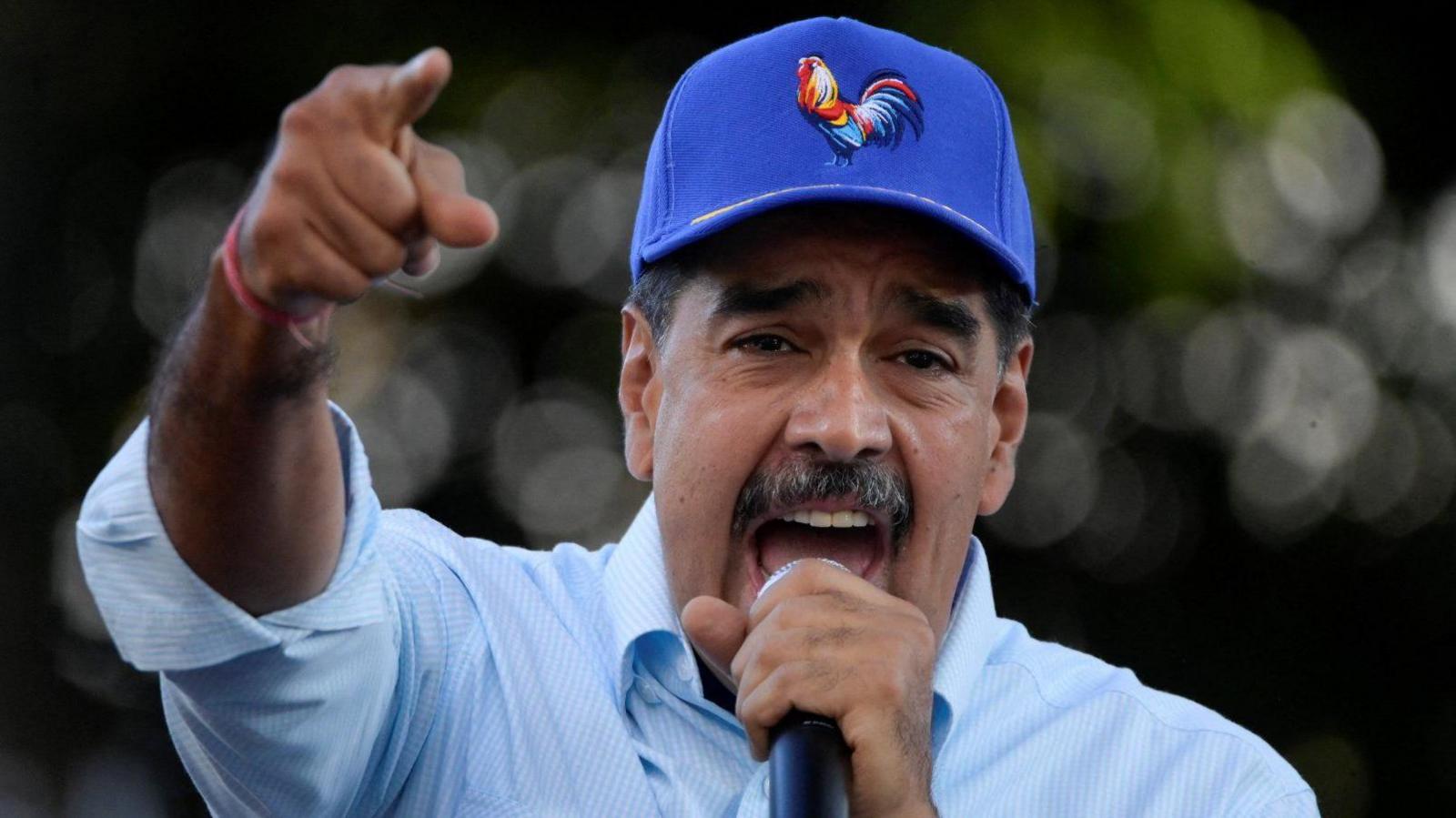Venezuelan opposition leader lands in Spain after fleeing homeland
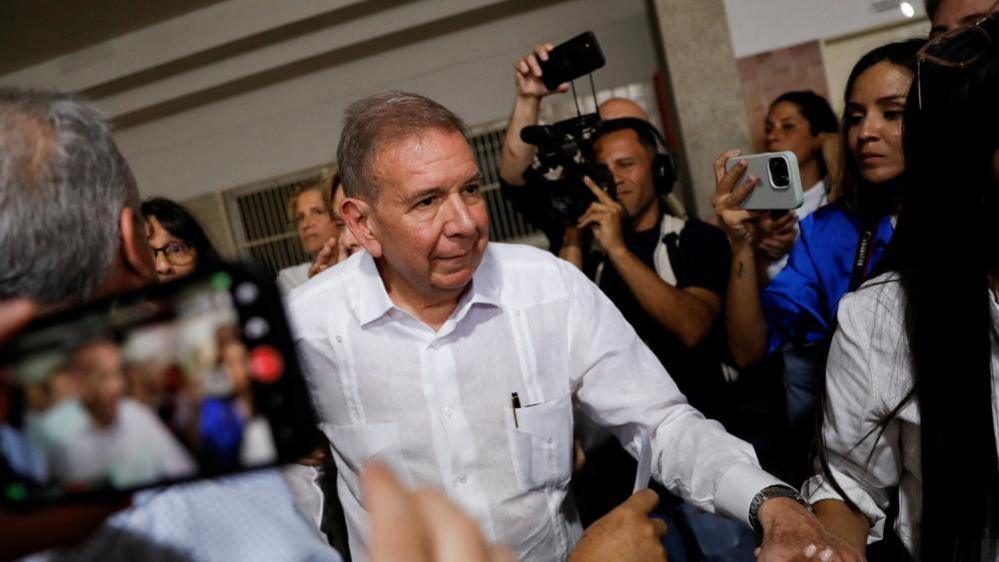
Edmundo González ran against Nicolás Maduro in the presidential election
- Published
The opposition candidate in Venezuela's recent presidential election has arrived in Spain after fleeing his homeland.
A Spanish Air Force plane carrying Edmundo González landed at Torrejón airbase in Madrid, where he will be granted political asylum.
Mr González had been in hiding in Venezuela. A warrant for his arrest was issued after the opposition disputed July's presidential election result, which saw incumbent Nicolás Maduro handed a third term.
The Venezuelan opposition's overall leader, María Corina Machado, said Mr González had fled "to preserve his freedom, his integrity and his life".
She accused Mr Maduro's administration of unleashing "a brutal wave of repression" following the election, the results of which many nations in the region have questioned.
Venezuela's Attorney General, Tarek Saab, said on Sunday that the Venezuelan government had agreed with Madrid to give him safe passage.
Mr Maduro's deputy had earlier said this was to restore "political peace", after Mr González "voluntarily" sought refuge at the Spanish embassy in Caracas.
However, Spain's foreign ministry said there had been no official talks with the Venezuelan government on Mr González's exit.
Venezuela crisis in brief
- Published5 August 2024
Key moments which led to Venezuela protests
- Published30 July 2024
Spain's Foreign Minister José Manuel Albares said that Madrid would grant Mr González asylum as it was "committed to the political rights" of all Venezuelans.
The departure of the 75-year-old came a week after Venezuelan authorities sought to arrest Mr González, accusing him of conspiracy and of forging documents, among other "serious crimes".
He had been in hiding since 30 July, fearing arrest following statements made by leading government politicians who said he should be "behind bars".
Mr González had not been widely known before March this year, when the main opposition coalition registered him as its candidate.
Ms Machado had won an open primary with 93% of the vote - but the opposition looked for an alternative candidate after she was barred from running for public office.
After another opposition candidate was also banned from standing, Mr González's name was put forward.
Fearing he too could be barred from running, the opposition kept Mr González in the background, while Ms Machado criss-crossed the country calling on people to vote for him.
The opposition said it had evidence Mr González had won by a comfortable margin, and uploaded detailed voting tallies to the internet which suggest Mr González beat Mr Maduro convincingly.
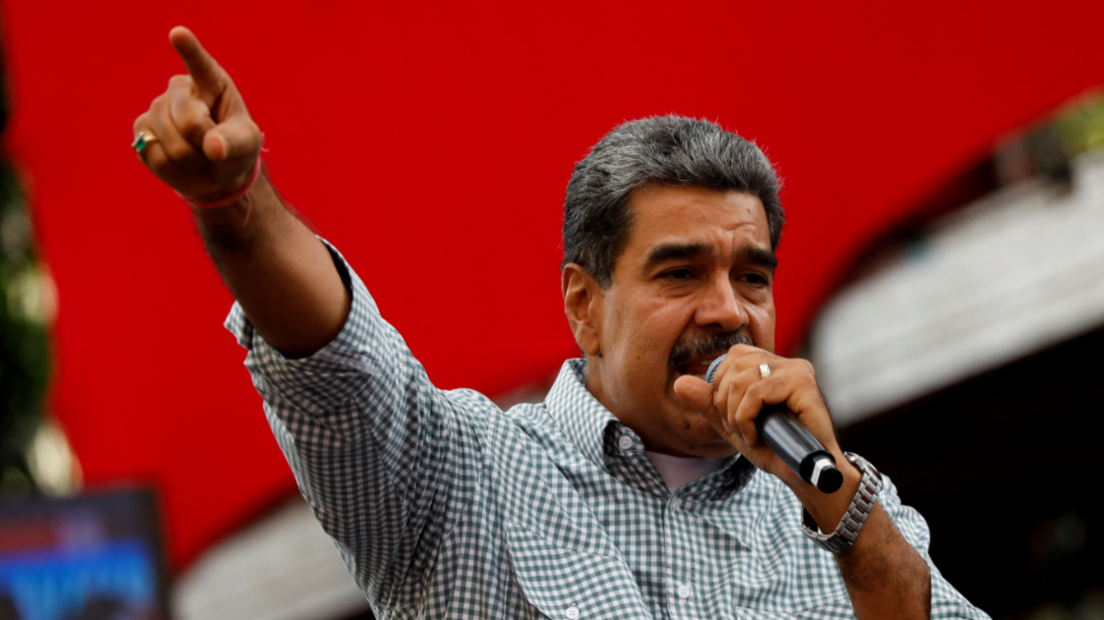
The opposition has questioned the validity of a victory for President Maduro
Venezuela's election body, which is stacked with government supporters, has failed to publish its voting tallies, despite international pressure to do so.
The US, the EU and the majority of foreign governments have refused to accept Mr Maduro as the winner without Caracas releasing detailed voting data to prove the result.
The European Union foreign policy chief, Josep Borrell, described Mr González's flight as "a sad day for democracy in Venezuela".
He added: "In a democracy, no political leader should be forced to seek asylum in another country."
Some nations have recognised Mr González as the winner of the Venezuelan presidential election, while allies of Mr Maduro - including Russia and China and Iran - have expressed support for the incumbent.
Spain's foreign minister reiterated on Sunday that until vote tallies were produced and verified, Madrid would not recognise Mr Maduro as president-elect.
Mr Albares said that Spain would "promote dialogue and negotiations between the government and the opposition to reach a peaceful solution".
Mr González's departure came as security forces in Venezuela have surrounded the Argentine embassy in the capital, Caracas, where six opposition figures have been sheltering.
Venezuela's foreign ministry alleged that terrorist acts were being plotted inside.
Related topics
- Published7 September 2024
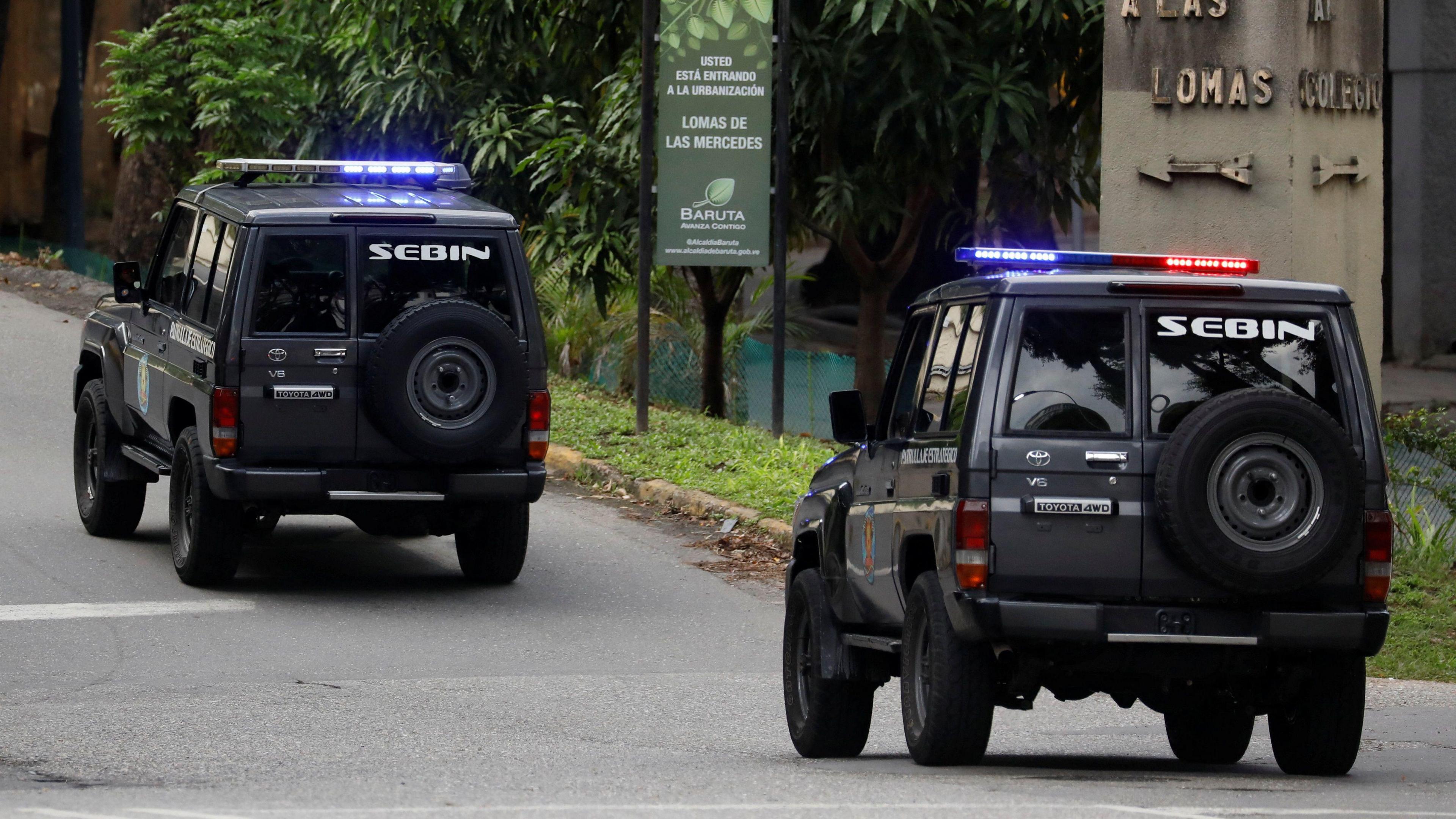
- Published3 September 2024
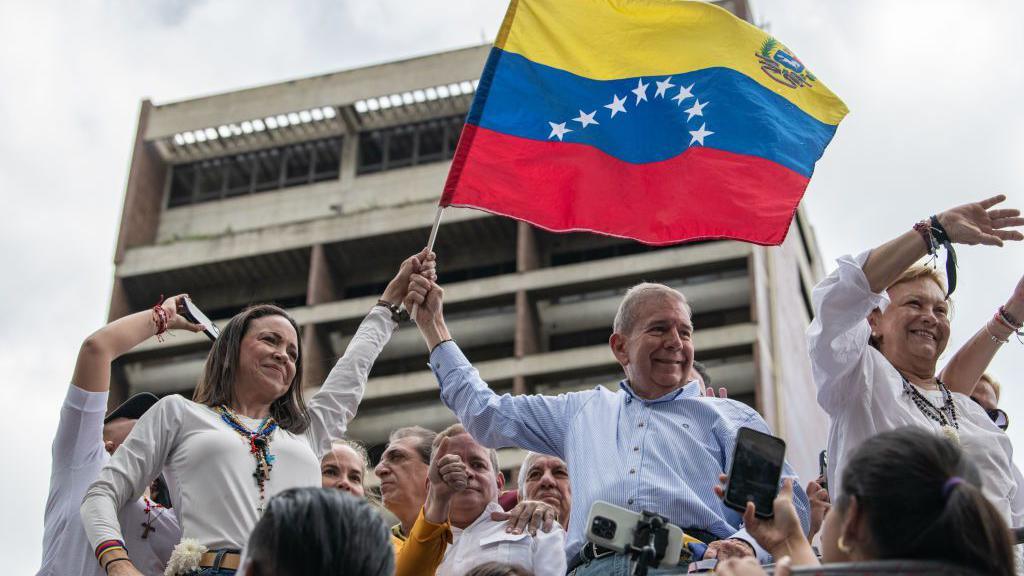
- Published14 August 2024
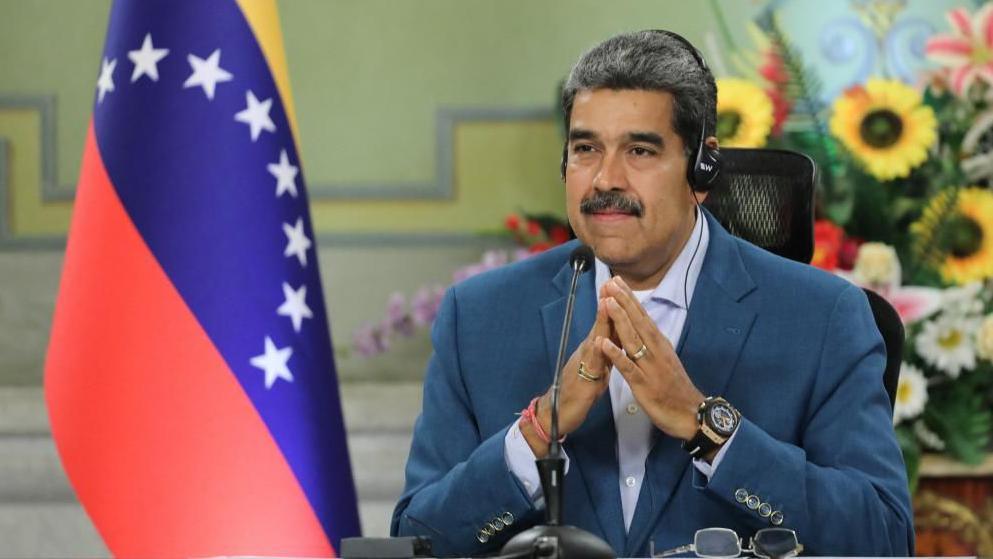
- Published23 August 2024
